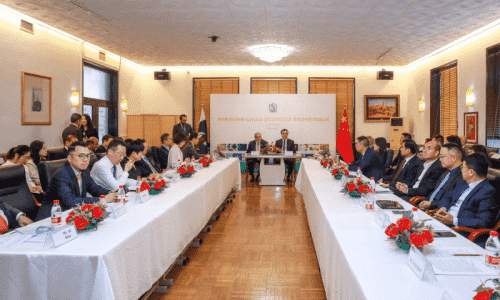BEIJING: On Thursday, Ishaq Dar, the Foreign Minister and Deputy Prime Minister, stated that the government, as part of its strategy for economic reforms, provides favorable incentives for investment. He urged Chinese businesspeople to capitalize on these policies and establish labor-intensive industries in Pakistan.
“The labor cost is far lower and more competitive than what it is now in China. The main industries in Pakistan with significant business potential include agriculture, textiles, mining, and information technology, the speaker stated during the Pakistan-China Business Roundtable Conference, which was hosted by the Pakistan Embassy in Beijing.
According to Mr. Dar, the government has accelerated the creation of special economic zones and provided alluring incentives for the founding of various industrial businesses. “We have identified 13 strategic areas with significant potential for Chinese and Pakistani businesspeople to establish industries through ownership or joint ventures with Pakistani entrepreneurs,” the speaker stated.
He said that Chinese businessmen might benefit from preferential market access to key economies, like the Gulf, China, the European Union, and other nations with whom Pakistan has free trade agreements.
He claimed that special economic zones, export processing zones, Gwadar free zones, and special technology zones in particular offer attractive and competitive incentives.
The deputy prime minister emphasized that a corporate perspective may be applied to the process of privatizing specific state-owned businesses. He promised that Chinese nationals and institutions in Pakistan would be protected, and he promised that those responsible for the terrorist incident in Dasu would soon face justice.
The foreign minister also met with Lan Foan, the Chinese minister of finance, and emphasized the reform program of the Pakistani government, which focuses on income generation, governance, and ease of doing business to draw in foreign direct investment.
In addition, he emphasized Pakistan’s strong preference for Chinese investments and gave a summary of the key industries designated for this purpose, which include IT, agriculture, mining and minerals, and renewable energy.
The Chinese minister and the deputy prime minister both expressed their deep gratitude for the banking and financial cooperation between China and Pakistan, referring to it as an example of the two nations’ all-weather strategic cooperative alliance.








